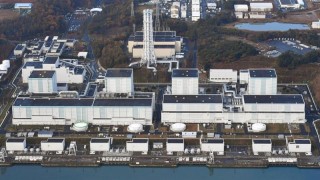Loading
Search
▼ Japan To Scrap Remaining Nuclear Reactors In Fukushima
- Category:Other
Tepco to decommission four more reactors in the Fukushima prefecture, eight years after Japan's worst nuclear disaster.
Tokyo Electric Power Company has announced plans to decommission its Fukushima Daini nuclear plant, located a few kilometres south of the Fukushima Daiichi plant where three reactors melted down after an earthquake and tsunami in 2011.
The decision by Tepco's board on Wednesday means all 10 nuclear reactors in the northeastern Fukushima prefecture will be decommissioned.
The prefectural government had previously urged the operator to dismantle the Daini plant, saying its existence has hampered reconstruction efforts, according to Kyodo news agency.
The Daini plant, which started its commercial operation in 1982, only narrowly avoided a major accident at the time of the disaster at the Daiichi.
Eight years ago, nearly 20,000 people died in the tidal wave destruction in what was Japan's worst nuclear disaster. At least 160,000 people were forced to leave their contaminated homes.
In April, Japan partially lifted an evacuation order in one of the two hometowns, Okuma, for the first time since the disaster, but many former residents are still reluctant to return.
The other hometown, Futaba, remains off-limits, as are several other towns nearby.
Tepco said it will take more than four decades to dismantle the four reactors at the Daini plant. The estimated cost for dismantling and decontamination will be 280 billion yen ($2.6bn).
Company president Tomoaki Kobayakawa visited Fukushima Governor Masao Uchibori and told him about the decision and the governor asked Kobayakawa to "make safe and steady progress" on the decommissioning.
The utility plans to build an on-site facility to store spent nuclear fuel from the plant, though it has yet to pick a final disposal site for the fuel, Japanese daily The Mainichi reported.
The decommissioning means Japan is left with 33 reactors to generate electricity nationwide, compared with 54 before the disaster.
Of the 33 units, seven reactors are in operation amid lingering concerns about nuclear energy.
Other nuclear plant operators have also opted to decommission ageing reactors due to hefty spending to meet new safety standards put in place after the disaster, making nuclear power far more expensive than it used to be.
Jonathan Cobb, senior analyst for the World Nuclear Association which represents the global industry, said it was important to examine how current reactors were being operated and make sure they are safe.
"Since the Fukushima accident, it was important for the industry to look at why those three reactors had the accident and to take measures in order to make sure that it doesn't happen again," he told Al Jazeera.
But nuclear power should be a part of the drive towards low-carbon electricity, Cobb added.
"Because the world's energy demand - especially for electricity - is increasing, we are going to need new electricity generation and because of the need for low-carbon generation and a reliable form of generation, nuclear needs to be a part of that mix."
- August 1, 2019
- Comment (0)
- Trackback(0)


